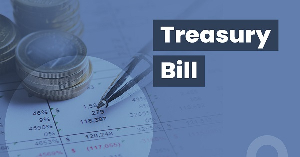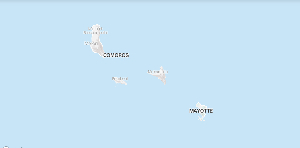The over-reliance on government short-term securities, also known as Treasury Bills, has reached its highest level in eight months.
Specifically, the 91-day bill yield climbed to 26.56 percent in the latest auction in November, indicating increased pressure on Ghana's short-term borrowing costs.
Since March 18 of this year, the current interest rate on the yields for the 91-day bill has been pegged at 26.49 percent, while the yields for the 182-day and 364-day bills stand at 27.58 percent and 29.03 percent respectively.
Over the past decade, Ghana's short-term securities have experienced significant volatility, reflecting the current economic crisis and government policy responses.
During the country's worst economic downturn in 2022, interest rates for Treasury Bills saw a dramatic surge, reaching levels around 35 percent, along with high inflation and a rapid decline in the cedi's value against major trading currencies.
A market analyst speaking with Graphic Business mentioned that the current rise in T-Bills yields indicate that investors remain cautious about the Ghanaian economy.
He noted that the elevated interest rates could further lead to a crowding effect that might negatively impact credit for private sector borrowing and investment.
"The upward trend in T-bill rates could influence other benchmark interest rates in the economy, potentially affecting commercial lending rates and the cost of credit for businesses and individuals.
"This could have broader implications for economic growth and private sector development in Ghana," the market analyst is quoted as saying by Graphic Business.
MA
Watch the latest edition of BizTech below:
Click here to follow the GhanaWeb Business WhatsApp channel
Business News of Tuesday, 5 November 2024
Source: www.ghanaweb.com

















